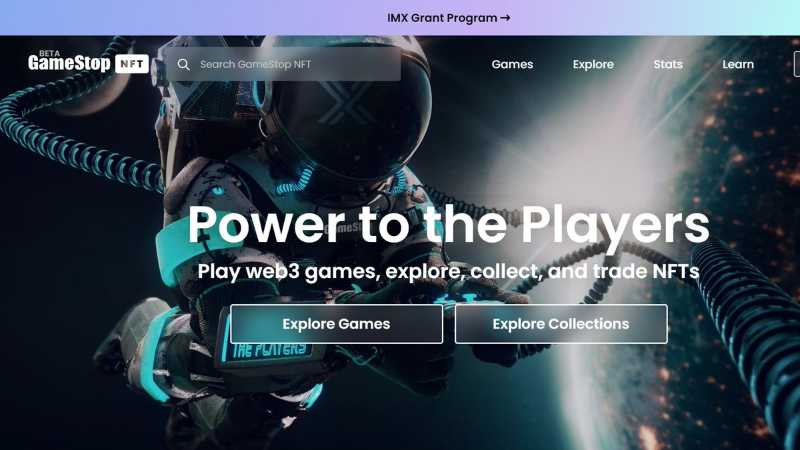Published on: 09/12/2022
GameStop to reduce focus on crypto projects after losing millions

Video game retailer GameStop has confirmed that it will no longer focus on cryptocurrency projects after recording net losses of $94.7 million in the third quarter, which led to the firing of its employees at the digital assets department.
On a December 7 earnings call, CEO Matt Furlong said that the company had “proactively minimized exposure to cryptocurrency” and “does not currently hold a material balance of any token.”
He added that even though the company continues to believe that digital assets have long-term potential in the gaming industry, it will not be putting significant stockholder capital at risk in this area. He said that GameStop’s future spending will be “very judicious.”
Furlong also said that the company had finally realized it needed the “right level of corporate staff” to meet its profitability and growth targets, confirming the next round of corporate layoffs, which will include cryptocurrency project staff.
Previously, the company said that it was contemplating crypto, nonfungible tokens (NFTs) and Web3 applications as prospective growth areas, calling this sector “increasingly relevant for future gamers.”
GameStop will focus on three main areas in the future—gaming, collectibles and pre-owned products. This strategy represents a return to the basics for the company, which built its reputation by selling pre-loved games.
GameStop’s latest earnings report
As said above, GameStop lost $94.7 million in the most recent quarter, down from a loss of $105.4 million in the same period last year. The retailer also revealed that it had $1.042 billion in cash, cash equivalents and marketable securities at the end of the period, compared to $1.413 billion in the same period last year.
GameStop’s revenue from devices and accessories totaled $627 million, or 52.8 percent of total revenue for the period. Software earned $352.1 million, while collectibles garnered $207.3 million, accounting for 29.7 percent and 17.5 percent of total revenue, respectively.
Despite its poor fiscal third-quarter earnings, GameStop’s stocks rose 10 percent on Thursday. Furlong revealed that GameStop is looking into potential acquisitions as part of a mission to achieve something unprecedented in the retail industry.
“Maintaining a sizable cash position will maximize our optionality and keep us strong against the challenging economic backdrop,” the CEO said. “If a strategic asset or complimentary business becomes available in the right price range, we want to be able to explore those acquisitions.”
GameStop NFT Marketplace
Before launching an NFT marketplace, the company built a beta self-custody crypto wallet and beta NFT marketplace on Loopring, an Ethereum-based layer-2 protocol, in March.
In July, GameStop finally launched a beta version of its NFT platform, GameStop NFT, in the Ethereum ecosystem. The company also announced a browser-based plugin Ethereum wallet similar to MetaMask in May.
The marketplace features in-game NFT assets from Web3 games, such as the trading card game Gods Unchained and the role-playing game Guild of Guardians. GameStop and Immutable X earlier introduced a $100 million token grant fund to bring game developers onto the marketplace.
However, the NFT marketplace has had little impact on the space. As of October 31, NFT analytics platform DappRadar revealed that it had generated only $29 million in trades since its launch. Even in a bear market, OpenSea, the largest marketplace for Ethereum NFT trading, regularly receives more than $6 million in daily volume.



